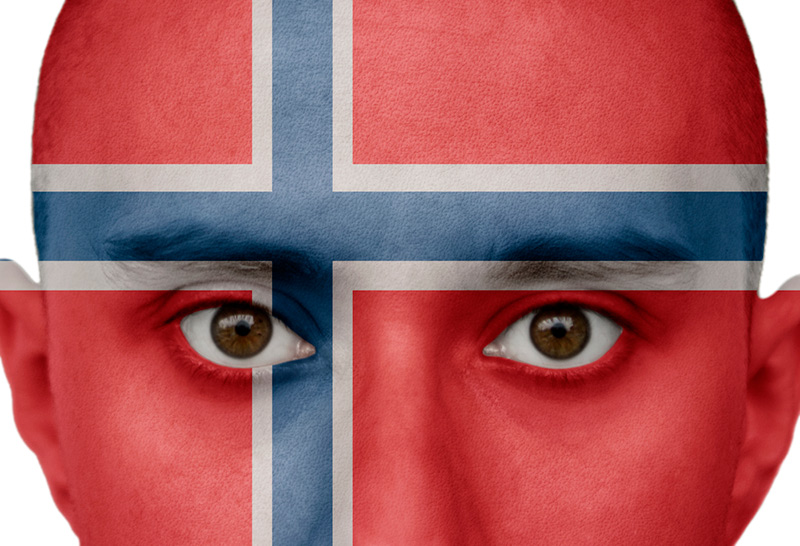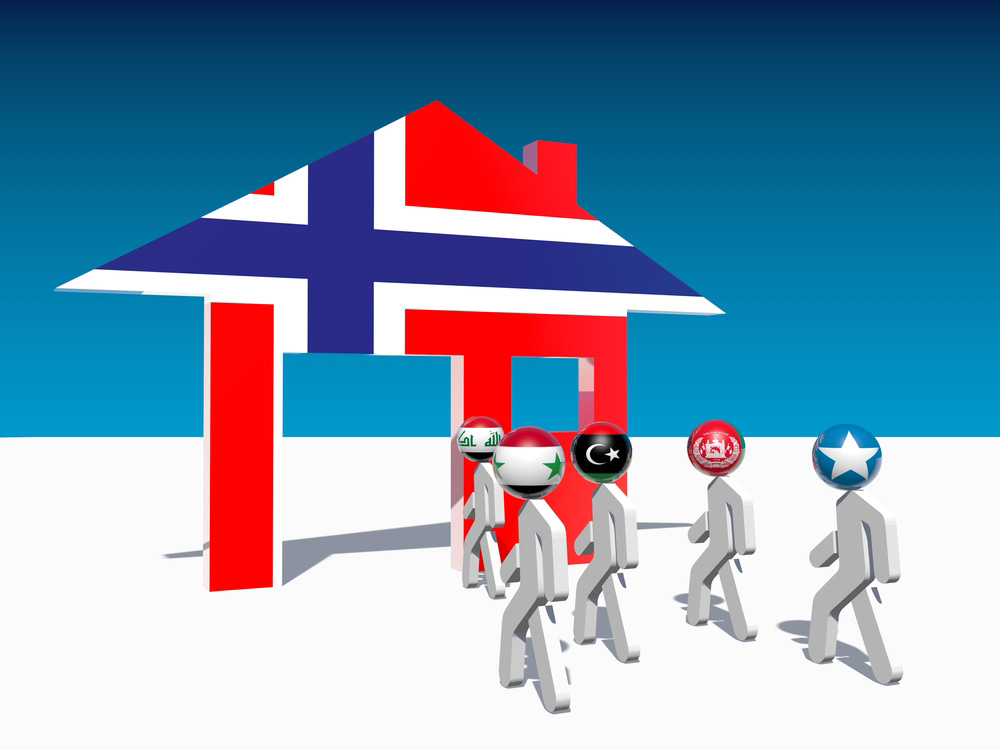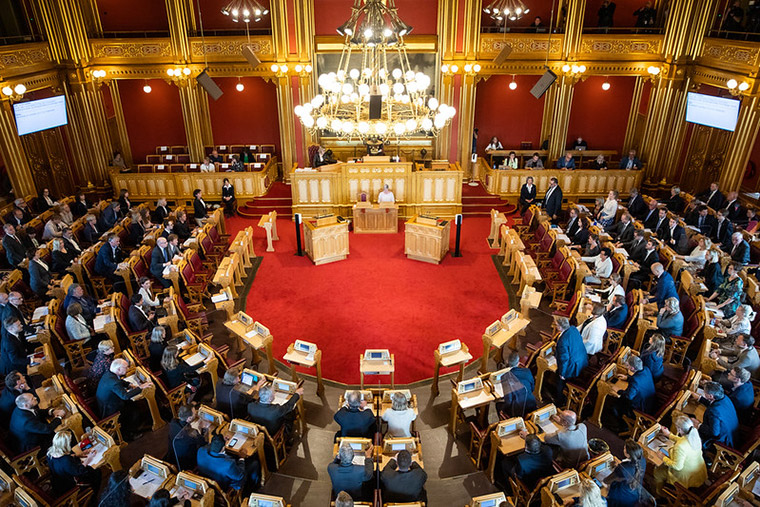
The period of residency required to gain permanent residence in Norway for some groups will be extended from three to five years, following a budget deal.
Despite leaving the coalition government earlier this year, Norway's anti-immigration party FrP continues to influence policy.
As part of a deal to ensure FrP's support of the 2021 budget, Norway's minority government will now seek to tighten asylum and immigration policy once again.
This will be done by raising the residence requirement for permanent residence in Norway for the most vulnerable groups from three to five years.
FrP's support of the three government parties was enough to pass the deal on Monday in the Norwegian parliament. While the change is yet to be formally made, it is expected to pass through Norway's parliament in the next few weeks.
What is permanent residence?
Norway's permanent residence permit allows immigrants to gain an indefinite right to remain in Norway.
The concept is that those people who have moved their life to Norway, learned the language and obtained a job, should be entitled to the right to stay that no longer requires the annual renewal of work or other permits.
Read more: Immigration in Norway
Up until now, applicants must have lived in Norway for the past three years holding valid residence permits. Some permits (e.g. study permits) do not count towards permanent residence.

You must have completed the mandatory tuition in the Norwegian language and social studies and/or passed the language exams. The exact requirements vary significantly based on your personal circumstances such as when you moved to Norway.
Most European citizens have the right to live in Norway under the terms of the EEA agreement, which removes the need for permanent residence to the same degree. That being said, European citizens can also apply for a different right of permanent residence permit if desired, after five years of residence.
Check UDI for the information relevant to you.
Two extra years of uncertainty
The policy change is relevant for non-EU/EEA refugees moving to Norway under the Immigration Act, typically as a refugee through the asylum process. It also applies to foreigners granted a residence permit under the family immigration category when the reference person is a refugee.
The policy change means that refugees and their families will face two extra years of long-term uncertainty than before.
For refugees, the policy change also means that if the situation in their home country changes, the temporary residence permit can be withdrawn and the refugee sent home.

Comes into force immediately
The changes apply to all applications for permanent residence that are submitted from 1 December, 2020.
Read more: Moving to Norway
However, anyone who as of 1 December did fulfil the requirements for permanent residence under the old system (i.e. three years residency) can still apply under the previous rules. In this case your application must be submitted before 1 February 2021.
Political games over immigration
Coalition partners Christian Democrats (KrF) along with the Liberals (Venstre) were initially opposed to the plan. Upon approval, FrP's Siv Jensen boasted that her party now has more influence than when they were part of the coalition.
“The fact that we forced KRF and Venstre to bend shows that we’re getting far more outside of the government than when we sat there, also in the field of asylum and immigration,” she said, according to Aftenposten.

KrF parliamentary leader Hans Fredrik Grøvan accepted that the policy change means extra uncertainty for immigrants, but highlighted that refugees who need protection will still get it:
“The fact that the residence requirement increases does not deprive one the right to live in Norway as long as the conditions in the home country give a reason for protection. But it gives a longer period of uncertainty for those concerned.”
The deal will be especially frustrating for supporters of the pro-immigration Liberal party. Their parliamentary leader Terje Breivik said he “understands that FrP celebrates its breakthroughs,” while highlighting the agreed budget is good “for green growth and reduction of greenhouse gas emissions.”
However, FrP did not get everything their own way. They had wanted to reduce the number of quota refugees that Norway accepts each year to 0. The figure will remain at 3,000.





Regarding skilled workers, it sounds like a little bit weird decision. Particularly for a country like Norway with noticeable issues in service area, public healthcare and high-tech (namely, software engineering — today’s oil and gas). It’d make sense to relax immigration law for doctors, teachers, economists, engineers, and some other specialists, in order to make the country more attractive for them. Ditto for the high-tech companies.
The question Norwegian authorities should ask themselves is “If I were young and ambitions skilled worker, why would I decide to move to Norway?”. It’s much harder to find a good reason now days, because the competitors suggest better terms. For example, lower taxes or tax allowance, wider job market, and higher service level. Of course, I’m talking about a long-term decision.
It’s getting interesting anyway…
Does this also apply to those on “skilled worker” permits?
No.
Please provide clarity about skill workers and their family immigrants.
It applies to refugees only.
Does this new law make it harder, and/or take significantly longer, for university-educated, Norwegian-speaking, skilled-worker American citizens to move to Norway on this specific visa? Even a little bit? I’m extremely eager to find out. Thank you so much for writing this article!!!
Thanks for the updates David.
I just pray and hope Norway does not follow the trend to push the vaccine on people that don’t want it like how they are doing in the UK, USA, and other countries. We are witnessing very worrying times, not only with jobs, but with the economy. These draconian laws are coming from the very top and unfortunately, are leaders are puppets on strings.
Praying 2021 will be a year of keeping our freedom.
Hi David,
Thanks for this article!
I subscribe to the newsletter and really like these.
My question has been rather hard to find online and is:
>>Would I be treated as an EU/EEA employable person if I have permanent residence in a EU/EEA member country? In this case it’s Germany.<<
Grateful for any help 🙂